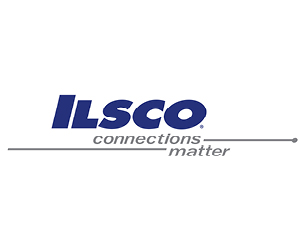In 2020, the federal solar investment tax credit (ITC) stepped down from 30% to 26% of project cost. It will step down again in 2021 to 22%, and will disappear altogether in 2022 for residential projects. It will still be in effect as a 10% tax credit for commercial solar energy systems. Why does this matter? For many in the solar industry who have relied on federal subsidization to drive investment over the past few years, the step down is viewed as a stimulus in the short term, but as a major blow to solar energy over the long term.
Industry leaders believe the increasing cost of installing a project that looms ahead will create a “salmon run” of customers and businesses who wish to undertake a solar project in the next two years while they can still take advantage of the ITC. However, many are fearful that a full eradication of the residential solar tax credit in 2022 will have a catastrophic effect. Luckily two forces are working to counteract the effects of the federal tax credit step down: state incentives and next-generation solar technology.
While federal legislators have proposed a Green New Deal that has not gotten enough traction to be signed into law, Colorado has enacted state incentives for going solar that aim to close the gap from the federal step down. With continued access to CPACE financing, commercial building owners can go solar for almost no money down and get competitive discounted loan rates that pay back over the course of up to 25 years. CPACE financing works by securing the financing against the property so that you pay back the loan as part of a special assessment on property taxes. In addition, if the solar installation is located in an Enterprise Zone in Colorado, which are legislature designated economically distressed areas targeted for growth and development, an additional 3% state tax credit can be applied to the total cost of a solar installation. Utilities, as well as state government, also have new rebate incentives. Xcel Solar Rewards in the greater Denver area offers monthly payments in exchange for Renewable Energy Credits produced by systems that can total up to $10/month savings for home installations. Holy Cross Energy has a per-kilowatt (kW) rebate for its customers to reduce the cost of going solar. The incentive is $4,500 for a 6kW system and it can be even greater for larger systems. EnergySmart Colorado also offers rebates of anywhere from $400 to $3,000 depending on where you live, that are available for solar installations in Eagle Valley, Roaring Fork Valley, and Summit County.
While the stepdown of the federal tax credit threatens to make solar more expensive, a company called Swift Solar based out of the National Renewable Energy Lab in Golden, Colorado and a testing facility in San Carlos, California is in the final stages of developing the next generation of solar technology. Using patented perovskite solar cells as an alternative to silicon-based cells, Swift Solar’s panels promise to be lighter and more durable than those currently available. Swift Solar researchers believe that the properties of these perovskite panels will decrease the price of manufacturing and drastically reduce the balance of system (BoS) costs of solar. BoS is currently the most expensive portion of the cost to install solar and encompasses the cost of racking systems and installation. For roofers, this means that solar installations could become much less intrusive, and instead of being fastened to rafters by lags drilled through shingles, panels could be fastened atop roofing systems. With new economic pressures on the industry, change could come fast to the look and cost of going solar.
Disclaimer: The information contained in this article is for general educational information only. This information does not constitute legal advice, is not intended to constitute legal advice, nor should it be relied upon as legal advice for your specific factual pattern or situation. Regulations and laws may vary depending on your location. Consult with a licensed attorney in your area if you wish to obtain legal advice and/or counsel for a legal issue.




